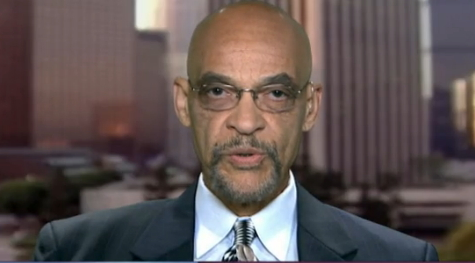Earl Ofari Hutchinson
Watch
I Was There–A Personal Remembrance of the Funeral of Emmett Till
“I was there.” These are the three words that I have often said over the years. These are also the three words that I have always wished I couldn’t say. I am talking about the lynching of Emmett Till. The release of the film, Till, based on the decades of struggle by Till’s mother, Mamie Till-Moseley, to get justice for her son, again is the reason I painfully say, I was there.
The film once more stirred the never-ending memory I have of September 3, 1955. That was the day of Till’s funeral at Roberts Temple Church of God on Chicago’s Southside. Then I lived only a few blocks from the church. The Catholic elementary school I attended was also close to the church. Till’s family lived only a few blocks from my house.
I still remember the sometimes hushed, and sometimes excited talk in my household about Till in the days before his funeral. I knew that something horrendous had happened, something almost unspeakable to his family.
The day of the funeral my father announced that he was going to pay his respects to the family. He would take me too. I and other children were not allowed in the church. We stood transfixed at the church entrance waiting for our parents to exit. I watched as my father stood in the line outside the church that seemed to stretch to infinity. This was no ordinary funeral but an event, and as we now know, a racial game-changing historic event. Till’s mother demanded that her son’s casket be open. She made it clear why. She wanted the world to see what they did to her boy. The “did” was the lynching. She wanted the world to see his horribly battered, totally disfigured body.
The “they” were a pack of maniacal, murderous, vengeful white men who instantly with the lynching of Till put the backwater town of Money, Mississippi on the global map.
The sight of Till’s battered body shocked my father. I still remember that vacant, near traumatized look on his face when he came as he walked out of the church after viewing Till’s body. He moved Zombie like quietly shaking his head. I did not understand then the pain and suffering that he and the thousands who viewed Till’s body that day felt. But I knew as I watched him that this was a death that hit him and everyone in our all-Black rigidly segregated Southside Chicago neighborhood hard. It was collective agony and suffering, that he and other Blacks on my block, and throughout the nation deeply felt.
If ever there was a racial lynching that screamed for federal action it was the Till case. The instant the story broke nationally, Black leaders demanded that the Justice Department and the FBI act. This was the right demand to make given the absolute refusal of white Southern sheriffs to arrest whites suspected of racial murders. In the rare cases, they were arrested, all-white juries refused to convict them.
The Till case was no exception. In a joke of a trial, the two white men that killed him were quickly acquitted. But that was not the end of it. The murder continued to send political shock waves across the nation. Black leaders, labor organizations, and numerous public officials implored the Justice Department to act. Even then there was a strong suspicion that others were either directly involved in the murder or had knowledge of the killing.
Federal statutes gave the Justice Department the power to prosecute individuals on civil rights charges when state prosecutors either failed to bring charges or conducted a weak, ineffectual prosecution that resulted in acquittals.
Till was abducted at gunpoint. That made it a kidnapping case. This automatically gave federal authorities jurisdiction over the case. They could have easily brought civil rights charges against the two principal defendants and any others who were suspected of complicity in his murder.
Till, though, was not solely a victim of a racist, and hostile white jury. He was also the victim of a racially indifferent federal government. In the pre-civil rights era, presidents and their attorneys general generally ignored or sparingly used the federal statutes to prosecute criminal civil rights cases abuses. This had less to do with the personalities, individual preferences, or even racial bigotry of the men in the White House and the Justice Department than with political expediency. They were determined not to offend the politically powerful South.
The murderers of Till are long dead. There have been many demands to prosecute Carolyn Bryant Donham. She is still alive. It was her lie that Till sexually harassed her that proved to be Till’s extra-legal death sentence. Mississippi’s attorney general in July 2022 again declined to prosecute her.
I and others owe an eternal debt of gratitude to Ms. Till-Mobley for her long and valiant fight for justice, Till is a powerful testament to that fight. It is a painful film to watch. But I did because I was there.
Earl Ofari Hutchinson is an author and political analyst. He is the author of the forthcoming Indicted: The Case for and Against Prosecuting Trump (Middle Passage Press). He is the host of the weekly Hutchinson Report on KPFK 90.7 FM Los Angeles and the Pacifica Network. He is the publisher of thehutchinsonreport.net

